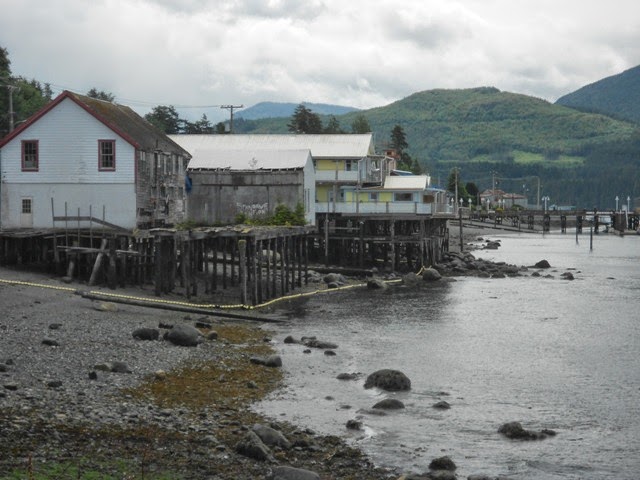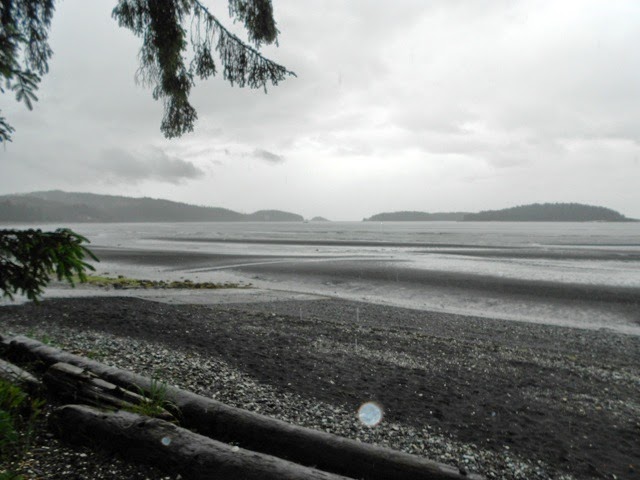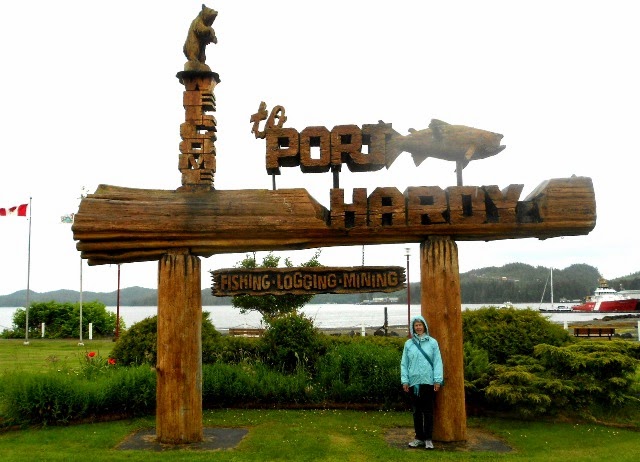Our purpose in going to Cormorant Island was to visit U'mista, the cultural centre of the Namgis nation. Any time we have an opportunity to visit an aboriginal community we like to go with a native guide because it is too easy to be innocently rude by breaking the unknown rules of etiquette. On this occasion we went with K'odi Nelson with Sea Wolf Adventures and it was well worth it. We spent about 4 hours with K'odi and learned so much more than if we had stumbled around on our own as we saw other people doing. For instance: in the cemetery are buried chiefs from many groups because there was a hospital on the island: burying the dead is not a traditional practice but was instilled by the Anglican Church; the memorial totems are not "restored" but are meant to return to the earth as they decay and fall apart.
 Fascinating, was the juxtaposition of the derelict St Michael's Residential School adjacent to the U'mista Cultural Centre which holds the "Potlatch Collection" of masks (no photos allowed) which were confiscated in 1922 and disbursed to collectors and museums around the world. Ironically, last summer the collection was on exchange with a museum in Dresden, Germany, so tourists to U'mista were faced with beautiful Dresden China instead of masks, and tourists to Dresden wanting to see the china, got the masks instead. Funny really.
Fascinating, was the juxtaposition of the derelict St Michael's Residential School adjacent to the U'mista Cultural Centre which holds the "Potlatch Collection" of masks (no photos allowed) which were confiscated in 1922 and disbursed to collectors and museums around the world. Ironically, last summer the collection was on exchange with a museum in Dresden, Germany, so tourists to U'mista were faced with beautiful Dresden China instead of masks, and tourists to Dresden wanting to see the china, got the masks instead. Funny really. |
| St Michaels Residential School |
K'odi's father was a student at St. Mike's and that experience impacted the family deeply. One Christmas when K'odi's grandfather came to pick up his son for a visit home in Kingcome Inlet, he was told the boy had been moved to Port Alberni even though he was still at St. Mike's. They did not see each other for another four years. It's still hard for us to accept that the residential school system went on for 70 years and was a deliberate attempt to destroy native culture. It's a concept foreign to our lauded Canadian Mosaic and not our finest national hour. Apparently the model was hatched in New Zealand and came to Canada via the US. Sad.
 |
| Inside The Big House of the Namgis people. |
It was a dark and chilly day, but fascinating.













